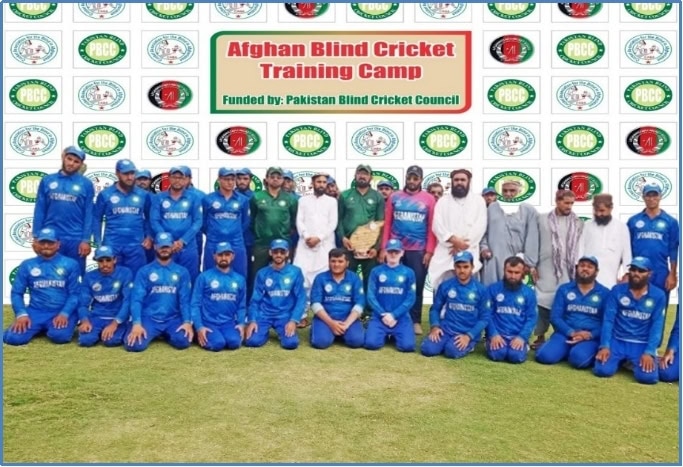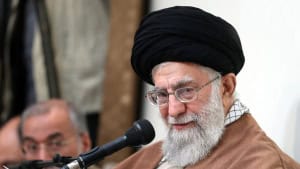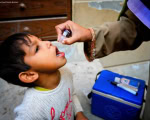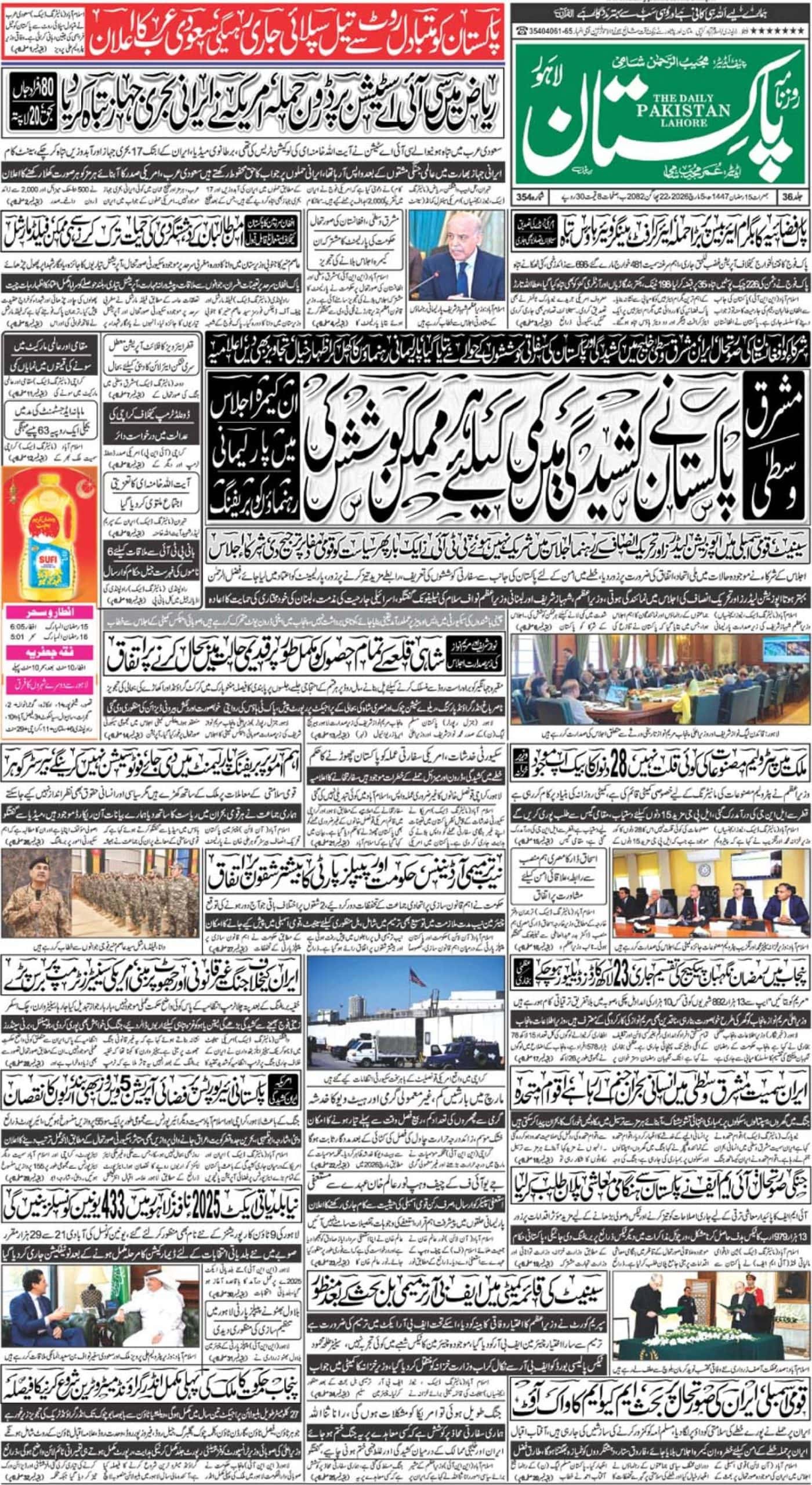Written by: Dr Muhammad Shabbir
This insight highlights the soft power of blind cricket, which has become a symbol of empowerment for South Asia’s visually impaired community. At the forefront of this movement is the Pakistan Blind Cricket Council (PBCC), whose recent efforts led to the first-ever blind cricket training camp in Afghanistan, held from 6 to 16 August 2024.
This milestone underscores the impact of cross-border cooperation and the power of inclusive sports to promote regional unity. Beyond these, when disability barriers are broken, something far more significant emerges, i.e., hope. The success of PBCC’s blind cricket is a foundation that could expand far beyond sports. Thus, Pakistan and Afghanistan, united in their mission to promote inclusivity for visually impaired persons across multiple domains, pave the way for Afghanistan’s development and foster regional peace and cooperation, creating a sense of shared purpose and unity.
Today, Pakistan’s role in Afghanistan is evolving. As a neighbour, Pakistan is stepping up as a partner in building Afghanistan’s future not only through sports but also through education and technology.
Over the years, Pakistan has hosted millions of Afghan refugees, offering them not just shelter but opportunities for a dignified life. Thousands of Afghan students have pursued higher education in Pakistan, with scholarships that equip them to become future leaders. For many Afghans, Pakistani hospitals provide medical care unavailable at their home to give a healing touch.
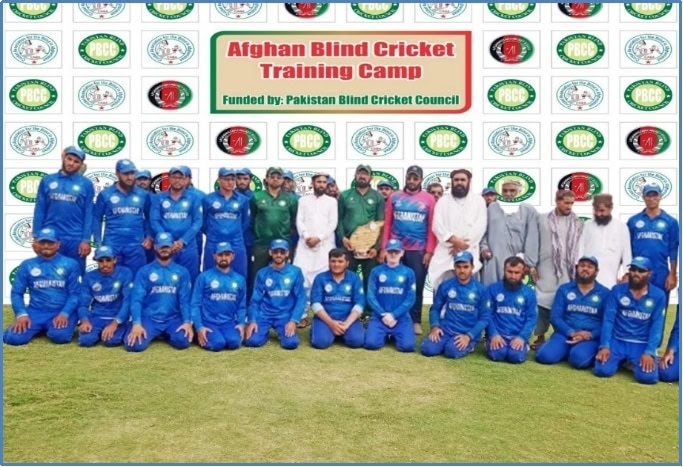
In cricket, visually impaired athletes can shine, representing just one piece of a larger puzzle. Beyond sports, Pakistan has the potential to empower blind Afghans in education, research, and public service based on the belief that blindness should never stand in the way of success.
The PBCC, under the leadership of Syed Sultan Shah, has demonstrated a longstanding commitment to expanding blind cricket throughout the region. After establishing teams in Nepal in 2006 and Bangladesh in 2008, the PBCC has turned its focus to Afghanistan. Shah’s dual roles as Chairman of the PBCC and President of World Blind Cricket Limited (WBCL) have propelled blind cricket to the forefront of inclusive sports in South Asia. The PBCC’s efforts have promoted the sport and fostered regional cooperation, paving the way for a more inclusive and united South Asia.
The training camp in Jalalabad wasn’t just a sports initiative but a fully funded programme covering training, kits, equipment, boarding, and travel. Pakistan sent legendary blind cricketers Masood Jan and Sanaullah Khan to share their expertise and foster mentorship and role models for Afghan players.
This gesture goes beyond philanthropy, building lasting capacity for blind cricket in Afghanistan. With this foundation, the Afghan blind cricket team is set to participate in the 2024 T-20 Blind Cricket World Cup in Pakistan from 20 November to 3 December 2024. This event, which will bring together blind cricket teams from across the world, is a testament to the growing influence and potential of blind cricket in the region and a proud moment for both nations.
Inclusive sports like blind cricket do more than improve physical fitness. They challenge societal perceptions. For visually impaired athletes, cricket becomes a battlefield where stereotypes are shattered with each swing of the bat. Blind individuals, too often pushed to society’s margins, prove that they can excel in strategic and leadership roles, inspiring hope and a sense of possibility. This transformative power of sports should inspire us all and give us hope for a more inclusive future.
In Afghanistan, this training camp is more than a chance to play a game – it is a lifeline. It represents a future where the blind community is surviving and thriving. The challenges faced by blind athletes in Afghanistan, like lack of resources and societal stigma, are immense. Masood Jan’s presence in Jalalabad was as much about expertise as it was about fostering unity. He brought a message: Afghan athletes are not alone in their journey. His mentorship is a testament to the unbreakable bonds forged through shared challenges and victories.
For Afghanistan’s blind athletes, this camp offered a stage to challenge misconceptions. As they train and compete, they show that blindness is no barrier to talent and that each moment on the cricket field is a declaration of defiance against the ignorance that has too often defined their lives. Their resilience and determination should inspire us all and encourage our support for their journey.
What Pakistan has done here is more than fostering sport. It has sown the seeds of possibility in a land scarred by conflict. If nurtured, these seeds have the potential to blossom into something Afghanistan has never seen before—an empowered, dignified, and celebrated blind community. This vision should inspire us all to support and nurture this potential.
These support acts in an era of geopolitical divides prove that diplomacy can operate on fields far from conference tables. Thus, this training camp also underscores how sports can serve as a diplomatic bridge. In South Asia, a region marked by political tensions, blind cricket is creating an unexpected channel for cooperation. The PBCC’s efforts speak to a form of diplomacy that transcends words, built instead on mutual respect and understanding.
But what happens when the game ends? What happens when the final ball is bowled and the dust settles? For Pakistan, blind cricket is only the beginning of an ongoing mission to uplift Afghanistan’s blind community. Cricket is the catalyst, but the goal is far more significant – achieving true empowerment. This has paved the way for Pakistan to open doors through educational partnerships, creating scholarships and distance learning opportunities for Afghan students with blindness and for Afghanistan to accept these offers.
Imagine a future where Afghanistan’s blind community is not just playing cricket but writing the policies, leading the research, and teaching the next generation. Pakistan has already laid the groundwork for this kind of revolution. Now, it’s time to extend that vision to Afghanistan.
Pakistan’s efforts should inspire the world. In a time of uncertainty and division, these acts of support for Afghanistan’s blind community prove that hope is a powerful force that transcends borders, breaks barriers, and changes lives. The journey is just beginning, but one thing is clear: Pakistan’s unwavering commitment to Afghanistan’s blind community will pave the way for a future where disability is no longer a barrier to success but a gateway to new possibilities.
The author can be reached at mshabbirawan@gmail.com

